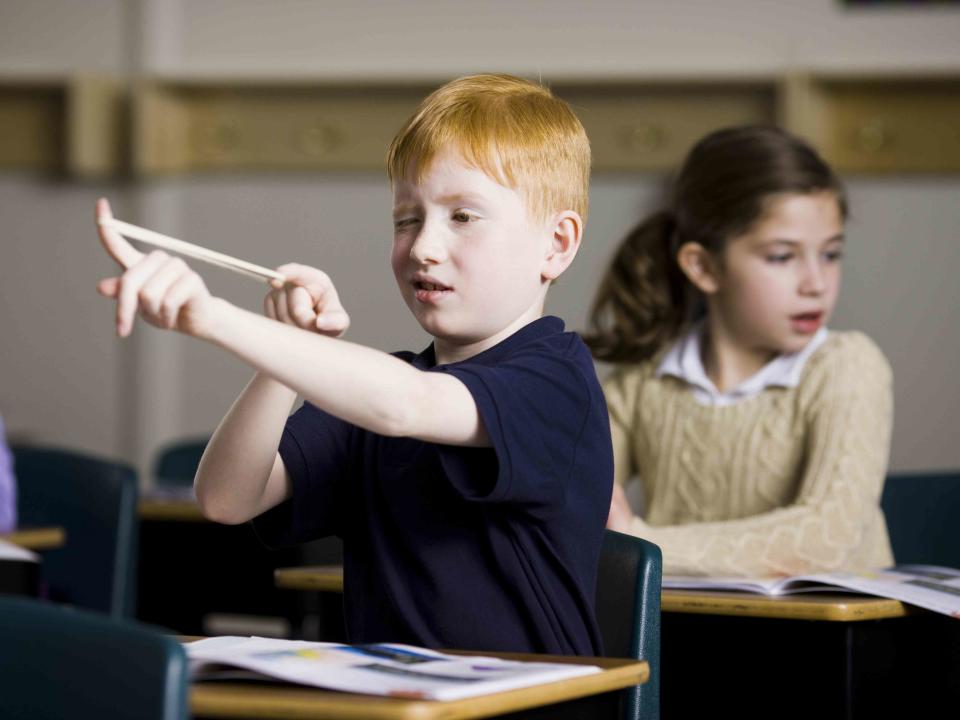What Is Reciprocal Determinism?
This theory explores the role our behavior plays in our environment

Reciprocal determinism was a theory proposed by psychologist Albert Bandura suggesting that a person's behavior is influenced by and influences individual factors and the environment.
Reciprocal determinism is a central concept of Albert Bandura's social learning theory. Also known as triadic reciprocality, reciprocal determinism is a model composed of three factors that influence behavior: the individual (including how they think and feel), their environment, and the behavior itself.
Previous theories of learning, such as the one put forth by B.F. Skinner argued that people’s behavior was always controlled by the environment. That people were nothing more than passive recipients of environmental influences.
But according to Bandura, not only does the environment influence a person’s thinking, but their subsequent behavior influences their environment. In other words, the environment influences how a person thinks and feels, which in turn influences their behavior, which impacts the environment, and so on.
Individuals are neither powerless objects controlled by environmental forces nor entirely free agents who can do whatever they choose.
Behavioral Factors in Reciprocal Determinism
According to the concept of reciprocal determinism, a person's behavior is influenced through cognitive processes and environmental factors such as social stimuli. For example, say a child acts out because they don't like school. This results in the teacher reprimanding the child, which may cause the child to act out even more.
Behavior refers to anything you do that may be rewarded or punished.
Environmental Factors in Reciprocal Determinism
The environmental component refers to the context in which the behavior occurs. More than a person's physical environment, this includes their social environment as well. Specifically, what people are present (or absent) and the attitudes, beliefs, and ideas these people hold.
So if the child from the previous example gets yelled at by a teacher for talking in class, it not only has an effect on them but on the classroom environment for the rest of the students, not to mention the teacher.
A person's physical and social environment influences the intensity and frequency of the behavior, just as the behavior itself can have an impact on the environment.
Personal Factors in Reciprocal Determinism
The individual component includes all the characteristics that have been rewarded in the past. Personality and cognitive factors play an important part in how a person behaves, including all of the individual's expectations, beliefs, and unique personality characteristics.
The behavior itself is something that may or may not be reinforced at any given time or situation. If the previous student knows that their teacher is more likely to reward them if they wait the end of the school day to misbehave, they'll likely tailor their behavior.
Notice how all the factors in this troubled student example affect each other: the child doesn't like school, they act out, the teachers and classmates react to the bad behavior, reinforcing the student's dislike of school and creating a hostile environment.
An Example of Reciprocal Determinism
Of course, the situation doesn't have to be a negative one.
Imagine a shy student who usually keeps to themselves (personal factor), walks into class on the first day of school to find that the other students are already sitting down (environmental factor). The shy student tries to slip into the back of the class to avoid becoming the center of attention (behavioral factor).
But if a classmate sitting at the front of the room boisterously greets the shy student and invites them to sit next to them, the environment has introduced a new reinforcing stimulus (the friendly student) that could lead to a change in this student's normal routine as well as a change in their behavior.
Self-Efficacy and Reciprocal Determinism
Reciprocal determinism is also associated with self-efficacy, or a person's level of belief in their own ability to achieve their goals. Self-efficacy represents a personal factor in reciprocal determinism. People with high self-efficacy are more likely to be confident when approaching problems (the behavior), which means they may be more likely to succeed in different situations (the environment).
In situations where someone has low self-efficacy, such as a student in class who lacks faith in their ability to do well, modifying aspects of the environment can be helpful. For example, a teacher who offers additional supportive resources and encouragement can help foster success which may then improve success and boost a student's sense of self-efficacy.
A Word From Verywell
Bandura's theory represented an important shift from the behavioral perspective to a more social-cognitive approach to understanding behavior. Behaviorists suggested that it was the environment that almost entirely shaped individual behavior.
Meanwhile, Bandura recognized the importance of the bidirectional relationship between individuals, their behaviors, and the environment. This suggests that while people are certainly affected by the things they experience in their environment, they also have the power to exert a change on their situation and circumstances through their own choices and behaviors.
